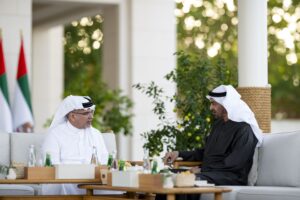Scientists find alien plants in UAE

Fujairah, The Gulf Observer: Scientists have found a growing number of “alien” plants are arriving in the UAE, but not all are proving to be ideal guests.
Their research has identified for the first time five species from other parts of the world that have put down roots in Fujairah.
These follow others, previously identified, that have arrived and settled in the country. Among them is a tree notorious for outcompeting native flora and using large amounts of water.
“As we progressed in our research, we began to increasingly find plants that had escaped from the culture, but still remained close to humans: on [irrigated areas], at the outlets of pipes from air conditioners,” said Mikhail Korshunov, one of the two authors of the study.
“Many species of ornamental plants, which were brought at first to plant nurseries, started to escape. So we came up with the idea that we need to go to the source of alien flora — plant nurseries.
“And there, from the very first attempt, we were encouraged by a huge number of plants that began to naturalise. Almost every next trip to a new plant nursery for research brought new finds.”
One species, painted spurge, which is fond of sandy soils, was found growing freely at a plant nursery in Dibba, while another, chay root, was discovered on the seafront at Fujairah. Neither had previously been recorded on the Arabian peninsula.
Seaside rivuletweed was found at a nursery in the Al Badiyah area, while East Indian mallow, which is common in wastelands in India, was identified at a nursery in Dibba, and the researchers discovered a climbing plant called lesser balloon vine or love in a puff at the Friday market in the village of Masafi. These three were all new to the UAE.
While there is no evidence of any of the five species becoming invasive, meaning that they are spreading quickly and causing harm by outcompeting local flora, this has happened with certain plants and animals transported to new areas.
Sometimes this is because the animals that consume them for food back home are absent in the new place, allowing the introduced species to reproduce and spread freely.
In certain instances plants have taken more than a century to become invasive, so plants having little impact now may become a nuisance later.
The research was done by Mr Korshunov, who is completing a PhD on his work in the Emirates at the Russian State Agrarian University in Moscow, and Dr Vyacheslav Byalt, of the Komarov Botanical Institute of the Russian Academy of Sciences in St Petersburg.
The new paper, published in a scientific journal called Turczaninowia, is one of several from a project they undertook between 2017 and 2022 under the patronage of Sheikh Mohammed bin Hamad Al Sharqi, Crown Prince of Fujairah, and the authorities in the emirate.


